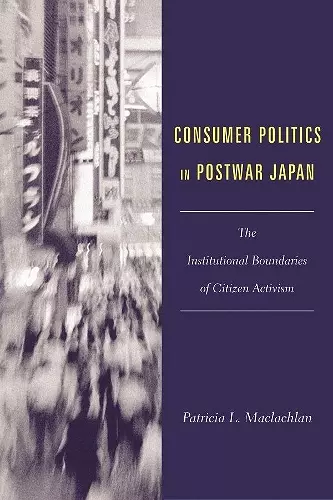Consumer Politics in Postwar Japan
The Institutional Boundaries of Citizen Activism
Format:Paperback
Publisher:Columbia University Press
Published:6th Feb '02
Currently unavailable, and unfortunately no date known when it will be back

This book examines Japan's postwar consumer protection movement, which, organized largely by housewives, led to the passage of basic consumer protection legislation in 1968. Macmillan points to the importance of activity at the local level, the role of minority parties, the limited utility of the courts, and the place of lawyers and academics in providing access to power.
Providing comparisons to the United States and Britain, this book examines Japan's postwar consumer protection movement. Organized largely by and for housewives and spurred by major cases of price gouging and product contamination, the movement led to the passage of basic consumer protection legislation in 1968. Although much of the story concerns the famous "iron triangle" of big business, national bureaucrats, and conservative party politics, Maclachlan takes a broader perspective. She points to the importance of activity at the local level, the role of minority parties, the limited utility of the courts, and the place of lawyers and academics in providing access to power. These mild social strategies have resulted in a significant amount of consumer protection.
Consumer Politics in Postwar Japan is likely to prove a classic study of Japanese policymaking... Maclachlan's work [is] excellent. It is rigorous and systematic in the tradition of the best social science without doing unnecessary violence to the complexity of political reality... Specialists will find Maclachlan's book useful, but students at most levels will also be able to read it. -- Robin M. LeBlanc Journal of Japanese Studies
ISBN: 9780231123471
Dimensions: unknown
Weight: unknown
270 pages